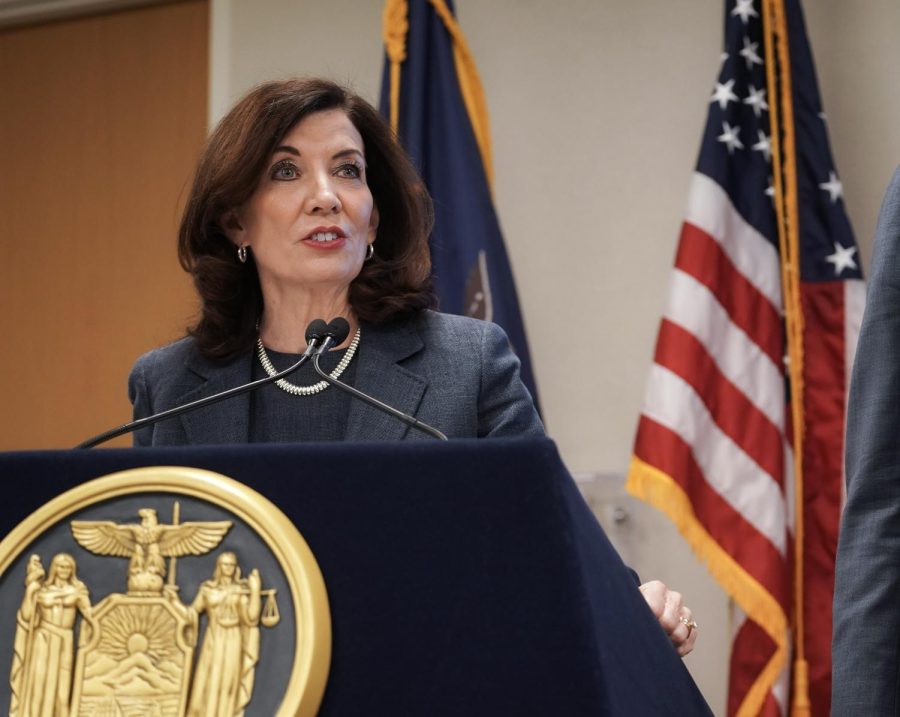Out-of-state students should not have to endure tuition hikes
May 8, 2023
Out-of-state CUNY and SUNY students should brace themselves for impending tuition hikes following Gov. Kathy Hochul’s approval of an unjust final state budget that still places the burden of fundraising on students.
Gov. Hochul’s initial budget proposal would have increased tuition for all CUNY and SUNY students, including those studying in-state, to match the Higher Education Price Index, which tracks main cost drivers and necessary funding increases.
This proposal did not ultimately make it to the final Fiscal Year 2024 New York State Budget agreement. Though this is good news for in-state students, out-of-state students should expect to see a 5% to 15% tuition jump, depending on their campus, in the next year.
Out-of-state students, a group that also includes international students, experienced sufficient hardships during the pandemic. Many were forced to pay extra fees for housing and experienced an abundance of additional costs onto their already exorbitant living and tuition fees.
Officials have been working toward addressing the growing list of demands of state and city universities despite strained financial resources exacerbated by declined enrollment and construction costs. But tuition hikes are counterintuitive, encumbering those they are supposed to benefit.
Democrats in the State Legislature were instrumental in the rejection of Hochul’s initial proposal to raise tuition across the board. Assembly Speaker Carl Heastie told Capital Tonight that schools should “figure out a different way of raising tuition.”
The same voices who spoke out against a tuition hike for in-state students need to take a hard stance against tuition hikes for their out-of-state classmates. This amendment is an improvement from Hochul’s proposal, but still greatly disadvantages a portion of the student population.
“We’ve seen in history … that raising tuition has an impact on who can go to school. New York as its policy should be making college easier to access, easier to afford – not harder,” Blair Horner, executive director of the New York Public Interest Research Group, said.







